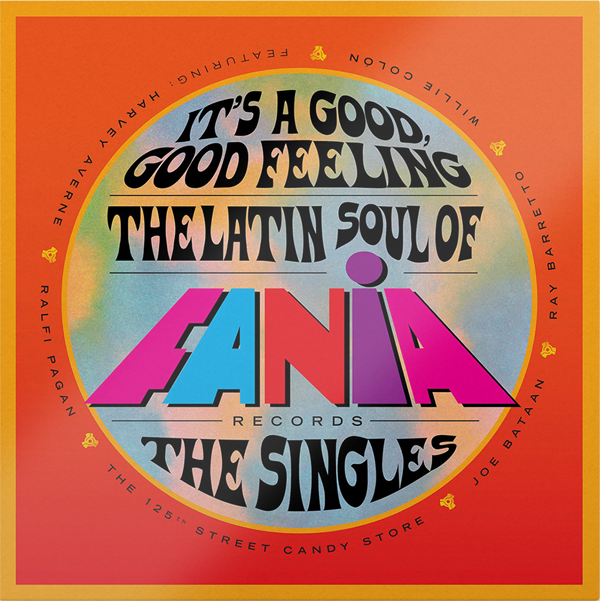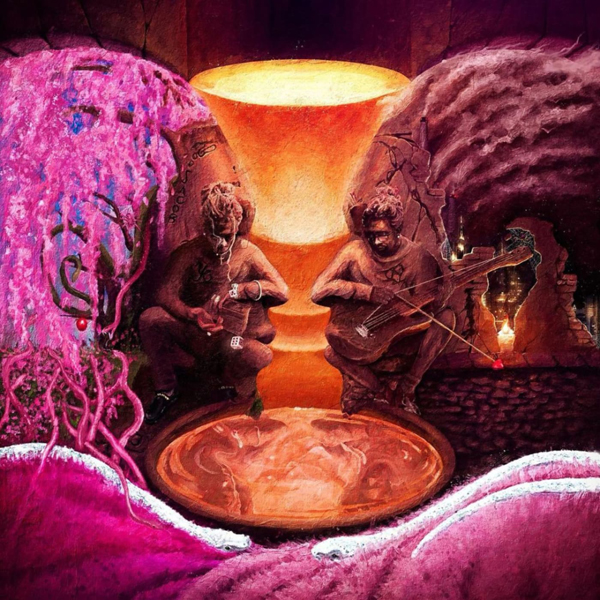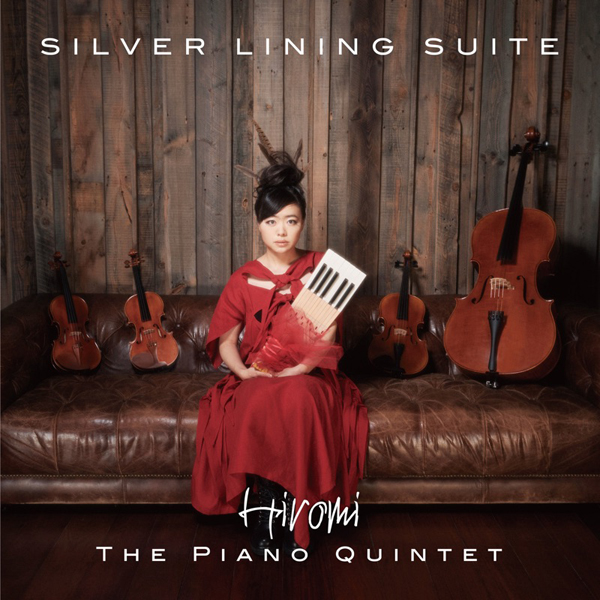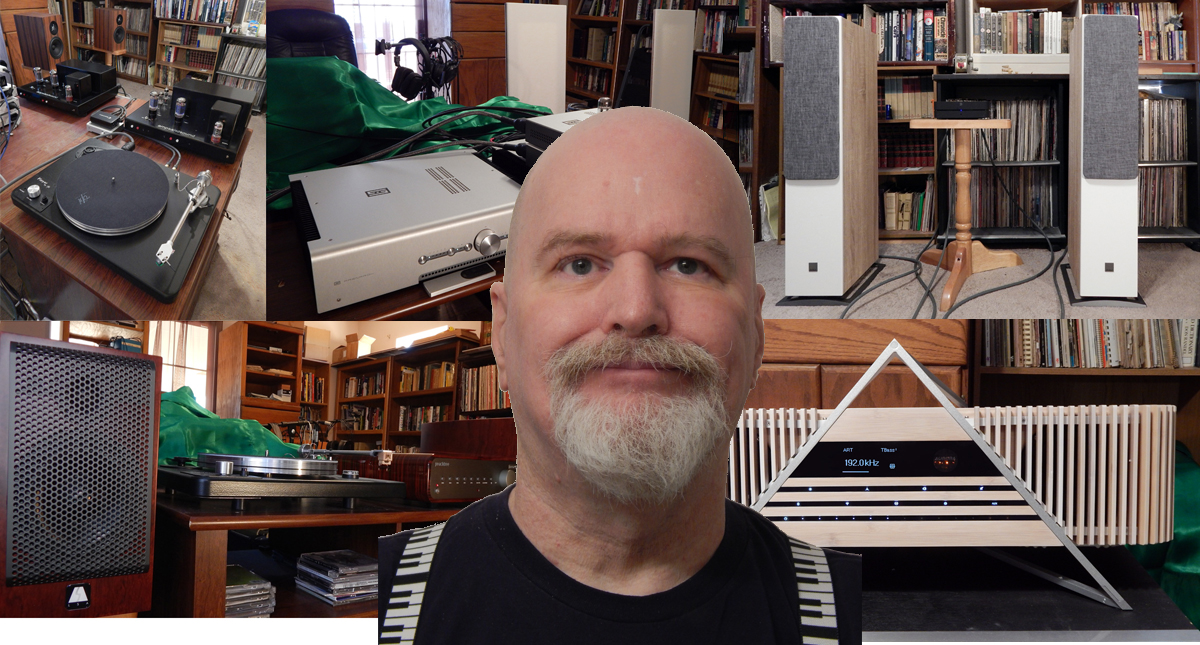There were a lot of interesting offerings to choose from this month, a couple of obvious classical recordings, a bunch of nebulous album covers, and a Latin Soul compilation with the feel-good title, “It’s a Good Good Feeling: the Latin Soul of Fania Records: the Singles” (16-bit/44.1kHz on Qobuz), so I started with that.

It turns out that Fania Records was a Latin Music label founded in the 1960s by Johnny Pacheco. The opening track was “Silent Heart”, a 1967 release from a band called 125th Street Candy Store. Though the recording quality was poor, but not unusual for the period, the sound was reminiscent of the Rascals, upbeat with a solid bass lead providing the rhythm backed by lively piano and layers of percussion including vibes, supporting a falsetto chorus and high alto lead vocal for this soul ballad. Horns took center stage for their faster-paced second track “Hey Girl”, which again was fun despite the tinny recording. The third track was an artist named Bobby Valentin singing a more traditional Salsa piece called “Geronimo” which featured plenty of Latin percussion and horns with a trumpet lead. “Make Out” by Harvey Averne +9, was slightly better recorded with solid Latin orchestra underpinnings. Willie Colón provided some epic salsa with his song “Willie Baby”. “Ordinary Guy” by Joe Bataan slowed things down for a low light slow ballad. The next artist was Monguito Santamaria who offered a Bossa Nova feel with “Juicy”. “Soul Drummers” by Ray Barretto had a slightly darker sound though it maintained the general upbeat feel. Of the 50 songs on this recording I’d like to say there was a standout, but truth is although the musicianship was epic on all of the tracks, the recording variable, nothing really rose above the rest, giving a fairly level sampling of Latin music of the period, yet some mention of the Fania All-Stars should be made as they were apparently fairly successful. While there were only two songs by the group “Richie’s Bag” is the most memorable of the two.

Craig Taborn’s “Shadow Plays (Live at Konzerthaus, Wien / 2020)” (24-bit/96kHz on Qobuz) is an exercise in piano virtuosity played to an awestruck silent audience, which is distinguishable from a studio recording only in the size of the soundstage presented. It is labeled as Jazz, but the opening track “Bird Templars” (17:02) speaks more of Avant-Garde Classical and is simply spellbinding in its complexity and beauty. “Discordia Concors”(8:57) is that type of arrhythmic syncopated composition that really speaks to me as a piano player. This is music I could listen to all day, music meant to appeal to the mind as well as the heart and soul, evoking emotions in a visceral way. “Conspiracy Of Things”(5:50) has a real Gershwin feel in its timing and structure, yet at times brought to mind early Keith Emerson when he was at his prime. “Concordia Discors”(11:59) though a play on the title of the previous track, starts out a melancholy noir piece that slowly increases in pace and complexity evoking images of waterfalls. It is a very cinematic piece telling a complete story, full of drama, and sadness, provoking a range of textures, visuals, and emotions. “A Code With Spells”(8:09) is a darker somber piece which again reflects the influence of Gershwin and Bartók. On the other hand “Shadow Play”(18:37) opens in a more conventional way with a Beethoven-like opening crescendo but soon morphs into more contemporary timing and accents. The closing piece “Now In Hope” (5:05) is a more standard Jazz song done in the style of Gershwin, but lovely all the same. This album so impressed me that I added it to my “burn-in” playlist, this is the list of songs that I use to burn-in electronics, speakers, and headphones, which means I have to listen to them a lot and often, and this is clearly not something that would easily bore.

“Punk” by Young Thug (24-bit/44.1kHz on Qobuz) was labeled as Hip-Hop/Rap which I admit is not a genre I gravitate towards, but as I had opened the file, I decided to give it a listen (I admit I was drawn to the title). The first track “Die Slow” was more spoken word over etheric Twin Peaks style guitar, which was pretty cool. “Stressed” opened with very mellow electronica with auto-tune affected Reggae style singing and acoustic guitar which was interspersed with hardcore Rap over an electronic bass note rhythm. Offering up yet another style “Stupid/Asking” is half sung half spoken Reggae style vocal over island-style ukulele, electronic bass, and percussion for the first half of the song, whereas the second half has three layers of composition, a gentle piano air, under an electronic beat and spoken word/Rap vocal. It is the layers of different style performances that really makes this album work, “Recognize Real” has three layers of vocal over acoustic guitar with electric guitar accents and ethereal keyboards in the background. The other three tracks were more of the same, which means they are differentiated by being different though “Peepin Out The Window” does have some nice piano work, and “Rich Nigga Shit” was more like what you would expect of a Hip-Hop/Rap album. So even if you’re not into Hip-Hop/Rap I suggest that you give “Punk” a listen because you might find something you like, though you’ll probably find something you don’t like also.

Hiromi The Piano Quintet’s “Silver Lining Suite” (24-bit/192kHz on Qobuz) has a cover that says Classical music, but is on a Jazz label, Concord Jazz to be exact. While the music definitely contains elements of Classical, it is Jazz through and through. “Silver Lining Suite: Isolation” opens to Classical style strings, over which is layered upright bass and some of the most intense Jazz piano I have heard, then halfway through the piano reverts to Classical style refrains and maintains a half Classical half Jazz tempo throughout. Oddly, like Craig Taborn, the second movement of “Silver Lining Suite: The Unknown” dredges up images of Keith Emerson. “Silver Lining Suite: Drifters” is a lighter lyrical air with shades of Gershwin (while “Isolation” had a more Cole Porter feel). The final movement of “Silver Lining Suite: Fortitude” has a Fred Steiner vibe throwing up images of the Perry Mason TV show. “Uncertainty” has a lot more modern feel bringing up visions of Liz Story. The interesting thing about “Someday” is that you get the full feel of a Jazz trio without percussion while the strings add a welcome accent. “Jumpstart” certainly does with an almost BeBop aesthetic. I probably haven’t communicated the absolute virtuosity of Hiromi Uehara’s piano playing enough, she is in constant motion running multiple lead lines with both hands. Though gentle and lyrical “11:49” will leave you wondering how one person can produce so much from the piano. The closing track “Ribera Del Duero” is an upbeat almost Slavic whirl reminiscent of Aram Khachaturian and an appropriate crescendo to end an amazing album on.
While it was not my intention to review two so similar artists in the same month Craig Taborn and Hiromi Uehara were an absolute highlight to my year, much less month. I would stress that though similar in many aspects, they are very different. While Taborn is more Avant-Garde and his compositions reach into my soul as a composer myself, Hiromi is much more accessible and melodic, and I dare say, possibly more adept, though they both are epic pianists, she sounds a wee bit faster, though his sense of time might be better (the difference between rhythmic and arrhythmic styles). On the other hand “It’s a Good Good Feeling: the Latin Soul of Fania Records: the Singles” and “Punk” are definite finds. All in all, a good month for music. And with that, until next month, remember It’s All About the Music.








Leave a Reply
Want to join discussion?
Feel free to contribute!